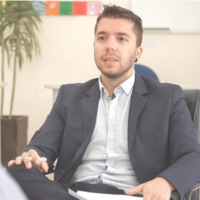Papers by Jasmine B Y Sim
Compare: A Journal of Comparative and International Education, 2013
Compare: A Journal of Comparative and International Education, 2013
Compare: A Journal of Comparative and International Education, 2013

British Journal of Educational Studies, Jul 5, 2010
States commonly employ education policy to build a strong sense of citizenship within young peopl... more States commonly employ education policy to build a strong sense of citizenship within young people and to create types of citizens appropriate to the country. In Singapore the government created a policy to build citizenship through both policy statements and social studies in the school curriculum. In the context of a tightly controlled state regulating schooling through a highly controlled educational system, the government expected teachers to obey these policy documents, political statements and the prescribed curriculum. What do teachers understand about citizenship in this context? In schools do teachers demonstrate independence of thought on citizenship education or do they acquiesce to government policy? This article reports on a small group of social studies teachers' understandings of citizenship, and explores the nature of these understandings in the context of government policy. The study showed an unexpected diversity of conceptualization amongst Singaporean teachers with their understandings of citizenship located in four themes, namely a sense of identity, rights and responsibilities, participation, and national history. This response was unintended by government and reflects an independence of citizenship education landscape in schools, despite the tight policy and bureaucratic controls over teachers by the Singapore state.

Asia Pacific Journal of Education, 2016
Critical patriotism is an ideal in many liberal Western nations. However, few studies explore how... more Critical patriotism is an ideal in many liberal Western nations. However, few studies explore how teachers in non-Western contexts understand and teach critical patriotism and the possible tensions that might arise from its adoption. This qualitative case study aims to understand the perceptions and practices of two Social Studies teachers from an elite girls’ school in Singapore, and their negotiation of the tensions arising from critical thinking and patriotism interacting. We found that the teachers perceived little contradiction between patriotism and critical thinking; hence, they generally taught in line with democratic citizenship education, in which they encouraged students to discuss controversies, brought in diverse perspectives and challenged the status quo. However, being sensitive to the socio-political context in Singapore, they sought consensus and gradual change, in contrast to the spirit of critical patriotism that favours confrontation and radical change. These findings suggest that in Singapore, where communitarian values are promoted, critical patriotism may be expressed differently. This study argues that constructive patriotism may be a better term to describe the type of patriotism observed in the teachers. Available at: http://www.tandfonline.com/doi/full/10.1080/02188791.2016.1142425
Educ Rev, 2011
... Page 6. Jasmine BY Sim 6 advance interests rather than to discover goods, and to keep men saf... more ... Page 6. Jasmine BY Sim 6 advance interests rather than to discover goods, and to keep men safely apart than to bring them fruitfully together‟ (Barber, p. 4). Because to participate is a right, citizens can choose when and whether to be active. It is no derogation ...

Http Dx Doi Org 10 1080 03054980903141549, Aug 11, 2009
Teachers understand and apply citizenship education differentially in traditional western democra... more Teachers understand and apply citizenship education differentially in traditional western democracies. But what of Asian countries where democracy is more recent and treated differently and where countries have traditions of highly controlled education systems? Do teachers have and demonstrate independence of thought in civic matters? This article reports on a study of social studies teachers’ understandings of citizenship education, and how these understandings influence their teaching. We found that teacher understandings and practice of citizenship education were located in three distinct groupings, characterised as nationalistic, socially concerned and person oriented. This reflected a citizenship education landscape in Singapore that, despite tight controls, was not as rigid, prescriptive or homogenous as literature on the Asian region suggests.
This article examines the nature and purpose of the social studies curriculum in the light of the... more This article examines the nature and purpose of the social studies curriculum in the light of the demands of citizenship education in Singapore. The development of social studies at the secondary school level is located within the history of citizenship education in Singapore. While the core focus of the subject continues to be that of nation-building, the introduction of social studies is also a significant milestone in the development of citizenship education in several ways. A major initiative is the emphasis on developing more thinking citizens. As a result, social studies is best taught apart from an explicitly moralising context, and in a context in which divergent thinking and views are tolerated. It also suggests ways in which social studies can provide young people with the skills and knowledge to function as citizens in the 21st century.
Http Dx Doi Org 10 1080 03057640903352481, Nov 20, 2009
... of the future, and an education system geared to the needs of the 21st century' (MOE... more ... of the future, and an education system geared to the needs of the 21st century' (MOE, 2008 ... They will be unable to grapple with the problems of the twenty-first century, not only in technology ... messages of prepar-ing students to live in a global society and developing the abilities ...
Compare: A Journal of Comparative and International Education, 2014
Education Innovation Series, 2013
Citizenship Pedagogies in Asia and the Pacific, 2011

Citizenship Teaching & Learning, 2014
Do drop me a message if you'd like to have a copy of this! Thanks! :) In 1965 Singapore b... more Do drop me a message if you'd like to have a copy of this! Thanks! :) In 1965 Singapore became independent after a two-year merger with Malaysia and over 100 years of British colonization. Since then, the government has been inculcating patriotism in its citizens through educational policies such as the introduction of Social Studies at secondary school. This process of education for patriotism is interesting in the case of Singapore in two respects: how teachers understand the link between patriotism and loyalty to the government; and whether teachers dare to cross boundaries to engage students in discussions that may challenge pro-government views. This study explores the perceptions and practices of three Social Studies teachers to address two issues. First, how do Social Studies teachers understand ‘patriotism’? Second, how do they teach it within or beyond boundaries? The findings show that teachers did not think that patriotism meant loyalty to the government; instead it meant loyalty to one another as Singapore citizens. Though the translation of teachers’ understandings of patriotism into the classroom differed from teacher to teacher, in terms of helping students think critically, there were elements of crossing the boundaries set by the ruling party.
Teaching and Teacher Education, 2013
Oxford Review of Education, 2009
Teachers understand and apply citizenship education differentially in traditional western democra... more Teachers understand and apply citizenship education differentially in traditional western democracies. But what of Asian countries where democracy is more recent and treated differently and where countries have traditions of highly controlled education systems? Do teachers have and demonstrate independence of thought in civic matters? This article reports on a study of social studies teachers’ understandings of citizenship education, and how these understandings influence their teaching. We found that teacher understandings and practice of citizenship education were located in three distinct groupings, characterised as nationalistic, socially concerned and person oriented. This reflected a citizenship education landscape in Singapore that, despite tight controls, was not as rigid, prescriptive or homogenous as literature on the Asian region suggests.

Oxford Review of Education, 2011
Singapore is an example of a country where there is centralised control of the school curriculum ... more Singapore is an example of a country where there is centralised control of the school curriculum and where political leaders wield direct influence over citizenship education. Co-ordinated and sustained effort is made to transmit the salient knowledge and values, develop the ‘right’ instincts and attitudes, to help students become believers in the particular ‘truths’ deemed necessary for the survival of Singapore. This article examines how a citizenship-related curriculum, social studies, develops students for their role as citizens by addressing the nature of the curriculum, the conception of citizenship promoted and the nature of thinking. Does the state have the right to impose its values on students, and to teach them to think in a particular way, or to believe certain ‘truths’? Are students respected as citizens or are they treated as subjects by the curriculum? The study found that social studies promotes a citizenship that is fraught with assumptions and contradictions, particularly by framing the notion of the common good in terms of national interests. This constrains the exercise of citizenship, trivialises participation and de-contextualises thinking. As a result, the students are more often treated like subjects than citizens.
Educational Review, 2008
... DOI: 10.1080/00131910802195836 Jasmine B.‐Y. Sim a * pages 253-266. ... Citizenship education... more ... DOI: 10.1080/00131910802195836 Jasmine B.‐Y. Sim a * pages 253-266. ... Citizenship education: Problems and possibilities.. Curriculum Studies , 4(3): 349–366. [Taylor & Francis Online] View all references; Lambert and Machon 200135. Lambert, D. and Machon, P. 2001. ...
Educational Review, 2012
... Page 6. Jasmine BY Sim 6 advance interests rather than to discover goods, and to keep men saf... more ... Page 6. Jasmine BY Sim 6 advance interests rather than to discover goods, and to keep men safely apart than to bring them fruitfully together‟ (Barber, p. 4). Because to participate is a right, citizens can choose when and whether to be active. It is no derogation ...
Cambridge Journal of Education, 2009
... of the future, and an education system geared to the needs of the 21st century' (MOE... more ... of the future, and an education system geared to the needs of the 21st century' (MOE, 2008 ... They will be unable to grapple with the problems of the twenty-first century, not only in technology ... messages of prepar-ing students to live in a global society and developing the abilities ...

British Journal of Educational Studies, 2009
States commonly employ education policy to build a strong sense of citizenship within young peopl... more States commonly employ education policy to build a strong sense of citizenship within young people and to create types of citizens appropriate to the country. In Singapore the government created a policy to build citizenship through both policy statements and social studies in the school curriculum. In the context of a tightly controlled state regulating schooling through a highly controlled educational system, the government expected teachers to obey these policy documents, political statements and the prescribed curriculum. What do teachers understand about citizenship in this context? In schools do teachers demonstrate independence of thought on citizenship education or do they acquiesce to government policy? This article reports on a small group of social studies teachers' understandings of citizenship, and explores the nature of these understandings in the context of government policy. The study showed an unexpected diversity of conceptualization amongst Singaporean teachers with their understandings of citizenship located in four themes, namely a sense of identity, rights and responsibilities, participation, and national history. This response was unintended by government and reflects an independence of citizenship education landscape in schools, despite the tight policy and bureaucratic controls over teachers by the Singapore state.










Uploads
Papers by Jasmine B Y Sim